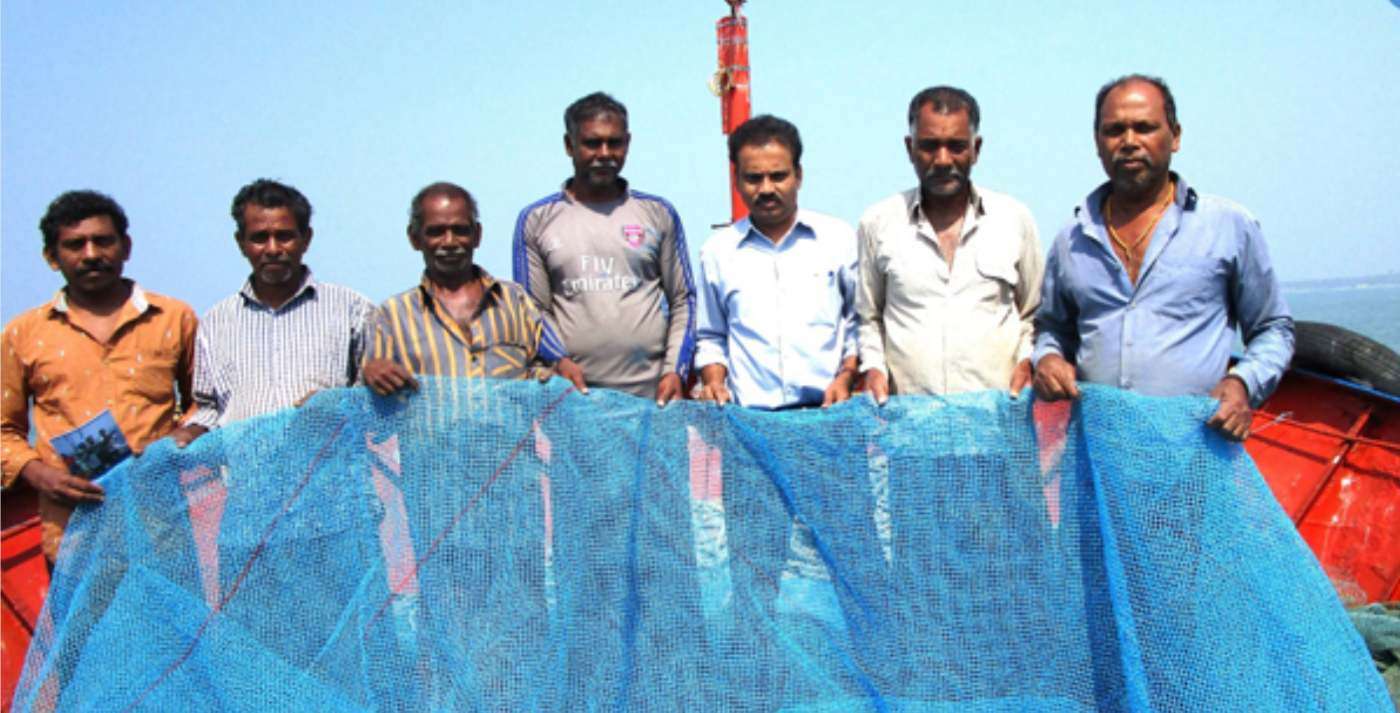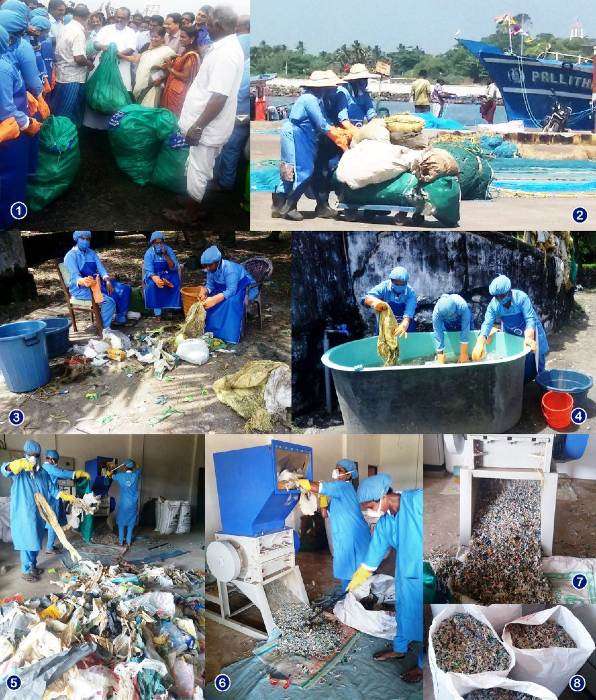Italy Bans Cruise Ships from Entering Historic Venice City Center
Announced on Wednesday by the Italian Cultural Minister, cruise liners will no longer be able to enter the Giudecca Canal in Venice's center.

In the state of Kerala, known as the Jewel of South India, fishermen are taking it upon themselves to keep it that way and secure their livelihoods against plastic pollution.
Their workers' association is encouraging fisherman to save all the plastic waste fished up by their nets in order to support a 2017 government clean seas initiative that's turning plastic into roads.
A sliver of coastal land on the southwest tip of India, Kerala has a thriving fishing community. According to a report from the Hindu, the fishing industry directly employs 55,000 people working on 3,600 boats, and almost a million indirectly, while generating 1.5 billion rupees, or $14 million in revenue.
As plastic content has gradually increased in the fishing waters, the local government took notice, passing a clean seas law known as the Suchitwa Sagaram, which instructed the harbor authority to distribute nylon bags to fishing boats with the request that they save every scrap of plastic that gets caught in their nets.
Once ashore, the plastic, often far too mangled or contaminated for available recycling methods, is shredded into a kind of confetti and mixed with asphalt to make roads. The arithmetic is positive, as it requires the plastic equivalent of a million shopping bags per kilometer of road, while replacing one ton of emissions-heavy asphalt and reducing road costs by about 9%.

The plastic in the roads appears also to give roads resistance to the immense heat of the midday Indian sun.
An April update on the Kerala fishermen's work from the Guardian details how the project has so far amassed 176,000 pounds (80,000 kilograms) of plastic, of which more than half has gone towards creating 84 miles (135km) of road.
"Previously, we didn't care much about the plastic we collected in our nets," Peter Mathias, president of the All Kerala Fishing Boat Operators' Association, told the Guardian. "But not any more—we're now protecting the ocean to save our livelihoods. Had we continued to be reckless, there wouldn't have been any more fish for us to catch."
The project, which also gives employment to those sorting the trash to sell to roadbuilding companies, is growing in scale up and down the 375 miles of coastline, with dive fisherman reportedly going to government buildings to see if they can get involved. too
Their workers' association is encouraging fisherman to save all the plastic waste fished up by their nets in order to support a 2017 government clean seas initiative that's turning plastic into roads.
A sliver of coastal land on the southwest tip of India, Kerala has a thriving fishing community. According to a report from the Hindu, the fishing industry directly employs 55,000 people working on 3,600 boats, and almost a million indirectly, while generating 1.5 billion rupees, or $14 million in revenue.
As plastic content has gradually increased in the fishing waters, the local government took notice, passing a clean seas law known as the Suchitwa Sagaram, which instructed the harbor authority to distribute nylon bags to fishing boats with the request that they save every scrap of plastic that gets caught in their nets.
Once ashore, the plastic, often far too mangled or contaminated for available recycling methods, is shredded into a kind of confetti and mixed with asphalt to make roads. The arithmetic is positive, as it requires the plastic equivalent of a million shopping bags per kilometer of road, while replacing one ton of emissions-heavy asphalt and reducing road costs by about 9%.

The plastic in the roads appears also to give roads resistance to the immense heat of the midday Indian sun.
An April update on the Kerala fishermen's work from the Guardian details how the project has so far amassed 176,000 pounds (80,000 kilograms) of plastic, of which more than half has gone towards creating 84 miles (135km) of road.
"Previously, we didn't care much about the plastic we collected in our nets," Peter Mathias, president of the All Kerala Fishing Boat Operators' Association, told the Guardian. "But not any more—we're now protecting the ocean to save our livelihoods. Had we continued to be reckless, there wouldn't have been any more fish for us to catch."
The project, which also gives employment to those sorting the trash to sell to roadbuilding companies, is growing in scale up and down the 375 miles of coastline, with dive fisherman reportedly going to government buildings to see if they can get involved. too
Local sources also explain that attitudes are changing in the state towards plastic pollution, and there's now a sense of pride in these efforts, such that locals try and keep littering tourists in line, and fishermen put stickers on their boats displaying their participation.
SHARE This Positive Trend With Pals on Social Media…
Be the first to comment